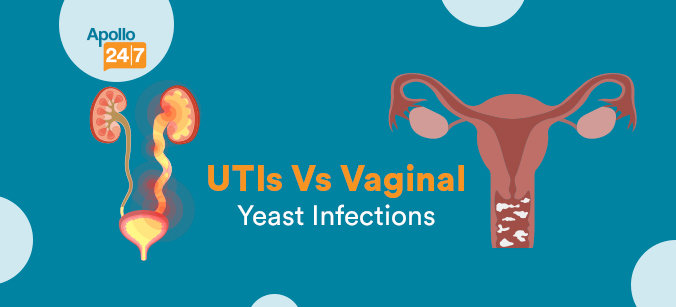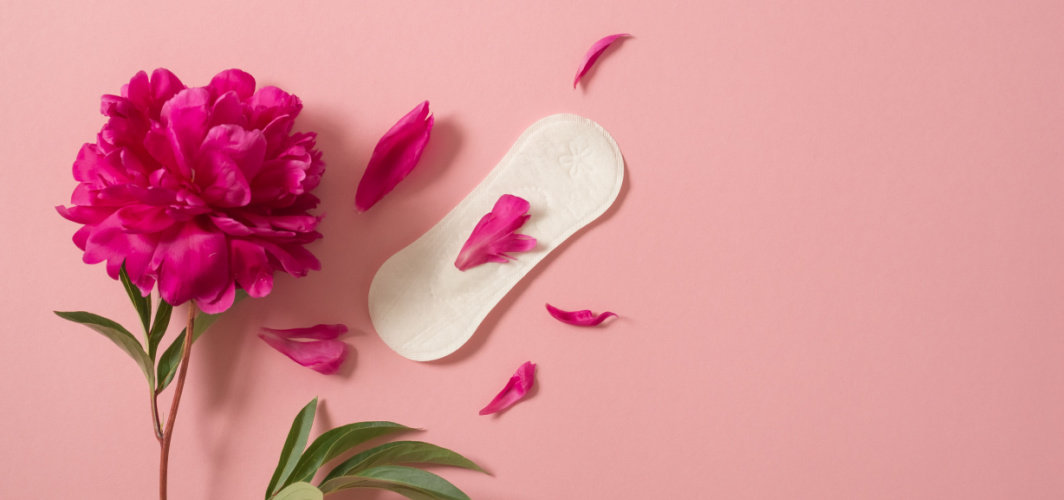- Home
- Blog
- Women Care
Bladder Problems for Women: Causes and Treatments
Women Care
Bladder Problems for Women: Causes and Treatments
By Apollo Pharmacy, Published on- 27 October 2023, Updated on -25 January 2024
Share this article
0
3 likes

Urinary bladder problems are common among women and can significantly impact their quality of life, causing discomfort, inconvenience, and embarrassment. In some cases, untreated causes of bladder incontinence in women can increase the risk of urinary tract infections (UTIs) and kidney damage. Fortunately, many women can find relief and regain control over their bladder function with early diagnosis and appropriate bladder infection treatment. In the following sections, we will explore the various causes of bladder problems in women and the available treatment options to better support women care. Understanding these factors can empower women to take control of their bladder health and seek appropriate care when needed. So, let's dive in!
Common Bladder Problems in Women
Understanding women's common urinary bladder problems is crucial for early detection and timely treatment.
1. Urinary Tract Infections (UTIs)
Urinary tract infections (UTIs) are among India's most common urinary bladder problems, affecting 66.78% of women. They occur when bacteria enter the urethra and travel up to the bladder.
- Causes: The causes of bladder problems like UTIs can vary, but the most common culprit is the bacteria Escherichia coli (E. coli) from the gastrointestinal tract. Other potential causes include sexual activity, improper hygiene, and a weakened immune system.
- Symptoms: UTIs may include a strong and persistent urge to urinate, a burning sensation during urination, cloudy or blood-tinged urine, and pelvic pain.
- Treatment: Treatment for UTIs usually involves a course of antibiotics prescribed by a healthcare professional.
2. Overactive Bladder (OAB)
Overactive bladder (OAB) is another prevalent urinary bladder problem in women. OAB is a common issue, particularly in older adults, and it can significantly impact a person's quality of life.
- Causes: The causes of bladder incontinence in women such as OAB can vary, but it is commonly attributed to involuntary contractions of the bladder muscles. Factors such as nerve damage, hormonal changes, and certain medications can contribute to OAB.
- Symptoms: Symptoms of OAB may include frequent urination, an urgency to urinate, and urinary bladder incontinence.
- Treatment: Treatment options for OAB include lifestyle modifications, bladder training exercises, medications, and, in severe cases, surgical interventions.
3. Stress Incontinence
Stress incontinence is a urinary bladder problem where any pressure exerted on the bladder causes urine leakage.
- Causes: It is primarily caused by weakened pelvic floor muscles that support the bladder and urethra. Factors such as pregnancy, childbirth, menopause, obesity, and certain medical conditions that cause can contribute to stress incontinence.
- Symptoms: Stress incontinence usually involves involuntary urine leakage during activities that increase abdominal pressure.
- Treatment: Stress incontinence can be treated using pelvic floor exercises, lifestyle modifications, bladder training, and, in some cases, surgical procedures.
Medical Treatments for Bladder Problems
Various medicines and surgical options are available for bladder problems depending on the severity of the case. Following are some bladder infection treatment options that can help:
1. Medications
Antibiotics, such as amoxicillin, are commonly prescribed for UTIs to eliminate the infection-causing bacteria. Overactive bladder (OAB) can be managed with medications such as tolterodine that relax the bladder muscles, reducing symptoms like frequent urination and urgency. Additionally, medications such as mirabegron may be prescribed for stress incontinence to strengthen the pelvic floor muscles and improve bladder control.
2. Surgical Interventions
Surgical interventions may be recommended in severe cases of urinary bladder problems such as recurrent UTIs or stress incontinence that don't respond to other treatments. These procedures aim to correct underlying anatomical issues, strengthen the bladder or urethra muscles, or create additional support for the bladder. Examples of surgical interventions include:
- Sling procedures
- Bladder neck suspension
- Urinary diversion surgeries
Lifestyle Changes to Manage Bladder Problems
Making thoughtful lifestyle changes can be instrumental in managing the causes of bladder incontinence in women.
1. Dietary Recommendations for Bladder Health
Maintaining a healthy diet is crucial for managing urinary bladder problems. Here are some dietary changes you can make:
- Foods to Include in the Diet: Incorporating bladder-friendly foods can help improve bladder health. Opt for fibre-rich foods like whole grains, fruits, and vegetables. Additionally, consuming probiotics, like yoghurt or kefir, can promote a healthy gut and urinary tract.
- Foods to Avoid: Certain foods can irritate the bladder and worsen symptoms. It's best to limit or avoid caffeine, alcohol, spicy foods, citrus fruits, carbonated drinks, and artificial sweeteners.
2. Fluid Intake Management
Proper fluid intake management is essential for maintaining bladder health. Consider the following guidelines:
- Manage Fluid Intake: Aim to drink enough fluids throughout the day to stay adequately hydrated without overloading your bladder. Consuming around 6-8 cups (1.5-2 litres) of fluids daily is recommended, but this may vary depending on your individual needs and activity level.
- Staying Hydrated: While it may seem counterintuitive, staying hydrated is crucial for managing urinary bladder problems. Dehydration can concentrate urine and irritate the bladder, leading to increased urgency and frequency of urination. Therefore, ensure you drink enough water daily to maintain optimal hydration.
3. Strengthening the Pelvic Floor Muscles
The pelvic floor muscles play a crucial role in bladder control, helping to support the bladder and maintain continence. Regular exercises can help strengthen these muscles and improve bladder control. They include:
- Kegels
- Squats
- Bridges
- Pelvic lifts
Incorporating these exercises into your daily routine can significantly improve bladder control and reduce the risk of urinary incontinence.
Natural Remedies for Bladder Problems
Natural remedies can complement medical treatment for various bladder problems and help promote bladder health.
1. Herbal Remedies
Herbal remedies can be an effective way to support bladder health and alleviate certain urinary bladder problems. Some popular herbs for bladder health include:
- Cranberry: It is known for preventing UTIs by stopping bacteria from adhering to the bladder walls.
- Uva Ursi: It has antimicrobial properties that can help in treating UTIs.
- Horsetail: It has diuretic properties and may help reduce inflammation in the bladder.
2. Alternative Therapies
Acupuncture and acupressure are alternative therapies that can be used to address causes of bladder incontinence in women. Acupuncture involves the insertion of thin needles into the skin, while acupressure involves applying pressure to these points using fingers or hands. Both techniques are believed to help regulate bladder function, reduce pain, and improve overall urinary health.
Prevention Tips for Maintaining a Healthy Bladder
Maintaining proper hygiene is crucial in preventing UTIs, which can lead to urinary bladder problems. Remember to:
- Wipe from front to back after using the toilet
- Urinate before and after sexual intercourse
- Avoid using harsh soaps or douches in the genital area
- Change sanitary pads or tampons frequently during menstruation
- Avoid holding urine for too long and empty your bladder when you do go
- Maintain a healthy weight to reduce pressure on the bladder
- Limit your intake of caffeine and alcohol, as they can irritate the bladder
Conclusion
To sum it up, understanding the causes and treatments for women's bladder problems is vital to living a healthy life. Lifestyle changes, exercise, medical interventions, and prevention are keys to improved bladder health and overall well-being. Seek medical advice for proactive care. Stay informed, stay healthy!
FAQs
Q. Can hormonal changes contribute to bladder problems in women?
Yes. During menopause, the decline in estrogen levels can affect the strength and elasticity of the tissues surrounding the bladder, leading to urinary bladder problems such as bladder weakness and incontinence.
Q. Are there any lifestyle factors that are causes of bladder incontinence in women in women?
Yes. Obesity, smoking, chronic constipation, and a sedentary lifestyle can increase the risk of urinary bladder problems such as urinary incontinence and bladder infections.
Q. Can certain medications lead to urinary bladder problems in women?
Yes. Medications like diuretics, antihistamines, and muscle relaxants used for bladder infection treatment may interfere with bladder function, leading to urinary incontinence or difficulties emptying the bladder.
Q. Are there any specific medical conditions that can cause urinary bladder problems in women?
Yes. Conditions like diabetes, multiple sclerosis, Parkinson's disease, and pelvic organ prolapse can affect bladder function and lead to symptoms like urinary urgency, frequency, or leakage.
Q. Can bladder problems cause back pain in women?
Yes. Bladder problems can sometimes cause back pain, leading to discomfort in women.
Services
Women Care
Leave Comment
Services
Recommended for you

Women Care
Gestational Diabetes Diet: What To Eat And Avoid?
Gestational diabetes is a condition associated with pregnancy that can negatively affect both the mother and her unborn baby. Following a healthy diet can greatly help the mother take charge of the condition. Read to know more.

Women Care
UTIs Vs Vaginal Yeast Infection: What's The Difference and How to Prevent them?
UTIs and vaginal yeast infections are major health concerns that are affecting overall health condition of women. Know the difference between UTI and vaginal yeast infection and get diagnosed and treated for the same by an expert gynecologist near you.

Women Care
What You Need To Know About Tablet For Immediate Periods?
Explore options for inducing immediate periods with relevant tablets. Understand their usage, benefits, and potential risks.
Subscribe
Sign up for our free Health Library Daily Newsletter
Get doctor-approved health tips, news, and more.

